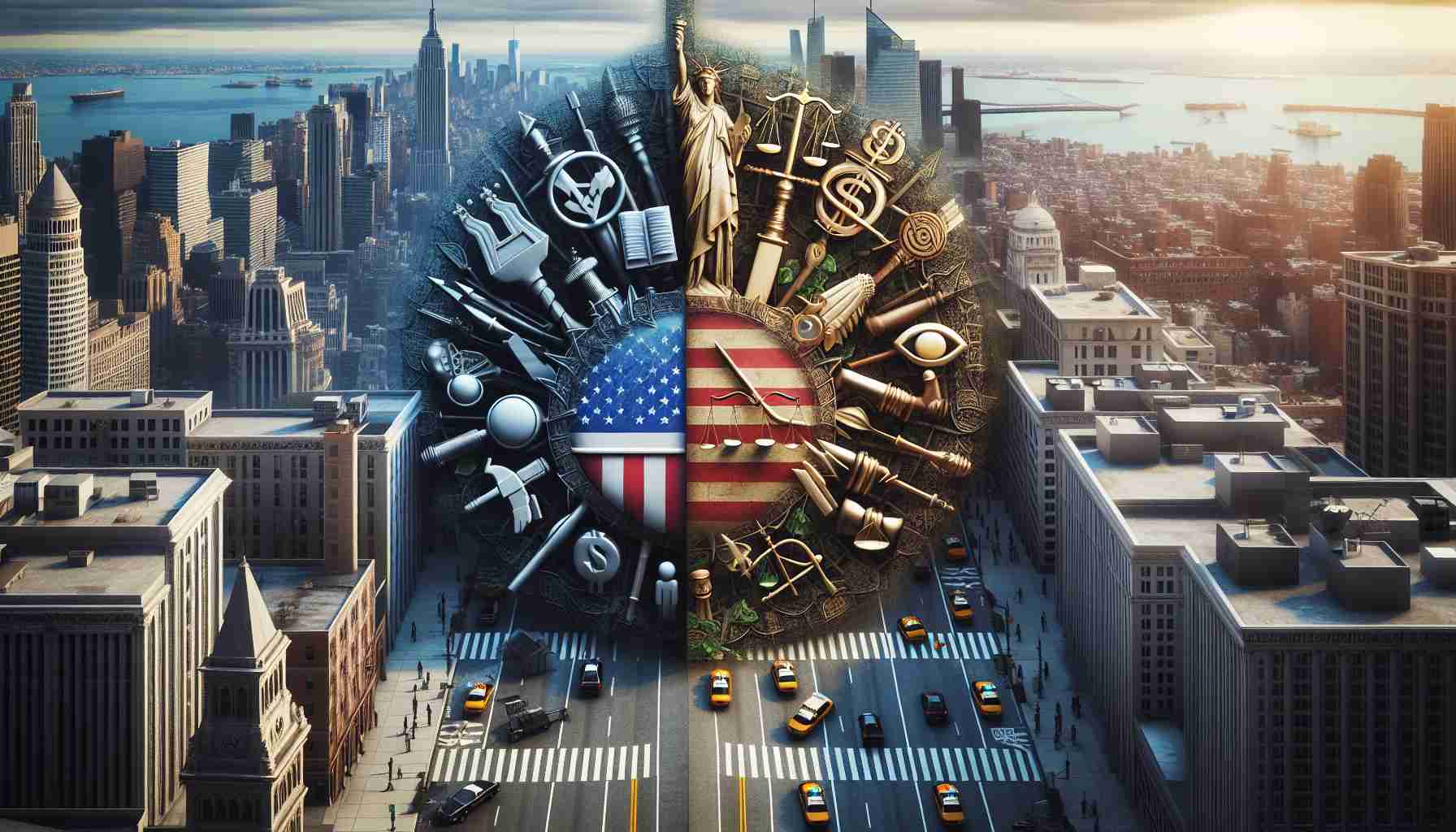The upcoming race between Community Education Councilwoman Maud Maron and current Manhattan District Attorney Alvin Bragg promises a showdown centered on policies rather than party affiliations. The contest, set for next November, follows Bragg’s high-profile victory in securing a massive indictment against President-elect Donald Trump, with 34 felony charges related to hush money allegations from 2018.
Policy over Party
Appearing on Fox News, Maron emphasized that the election’s outcome will hinge on essential policies that address New Yorkers’ core concerns like crime rates and education. She expressed the belief that citizens are looking beyond partisan lines to candidates with practical ideas and effective solutions. According to her, a significant crime surge of around 30% since 2019 underscores the urgency for new approaches.
Crime Rates Under Scrutiny
Maron, drawing from her experience as a defense litigator, asserted that current crime statistics might be underreported. Many citizens, disillusioned by the perceived inefficacy of legal responses, opt not to report incidents, particularly those related to petty theft. She suggested that a change in leadership is critical to restoring public safety and community trust.
A Second Bid for Change
This is Maron’s second electoral bid after her previous loss for the 10th Congressional District seat. Known for her stance against strict COVID-19 measures, she has remained an active figure in local education governance despite facing some resistance. While Bragg’s legal triumph against Trump played a significant role on the national stage, Maron argues that local priorities need a fresh focus.
Beyond Politics: How Local Elections Shape Technological Progress and Societal Development
In the bustling heart of New York, an intriguing battle unfolds, where the emphasis on policies rather than party affiliations in the electoral race between Community Education Councilwoman Maud Maron and current Manhattan District Attorney Alvin Bragg might herald a new era of pragmatic and issue-driven politics. This election is not just shaping the future of Manhattan’s legal and education systems but poses broader implications for societal development and emerging technologies.
The Role of Tech in Crime and Education
One angle not discussed in the typical political discourse is how technology can play a pivotal role in addressing crime and education—two core themes in the Maron-Bragg showdown. With crime rates reportedly underreported, as Maron suggests, advanced data analytics and machine learning can help law enforcement agencies identify patterns and predict hotspots of crime more effectively. This proactive approach could lead to a reduction in crime rates and a more efficient allocation of police resources.
In education, technologies like augmented reality and AI-driven personalized learning systems can revolutionize how students engage with educational content. The election could influence policy decisions that might fast-track the integration of these technologies into schools, potentially reducing the achievement gap and improving educational outcomes in Manhattan.
Innovating Public Safety Measures
A focus on innovation within public safety measures could significantly impact community trust. For example, the deployment of smart surveillance systems could alleviate concerns about underreported crimes and aid in gathering the evidence necessary to prosecute thefts and other minor offenses. However, controversy surrounds such measures due to privacy concerns. The balance between increased safety and individual privacy rights is a delicate one. Can we trust these systems not to infringe on personal freedoms?
Advantages and Disadvantages
The advantages of employing tech-driven solutions include efficiency in handling crime data and personalized education approaches, potentially leading to better societal outcomes. Yet, the disadvantages revolve around ethical considerations related to data privacy, potential biases in AI systems, and the digital divide that might leave certain communities behind.
Questions to Consider
– **Can data analytics truly provide a more accurate representation of crime rates?**
By aggregating data across different sources, cities can potentially create a more holistic crime map, but accuracy depends on the integrity of initial data inputs.
– **What could be the potential fallout of implementing AI in classrooms?**
While personalized learning could enhance outcomes, teachers might fear being replaced, and concerns about data usage and privacy will need to be addressed.
The Future at a Crossroads
As Manhattan prepares for this pivotal election, the choices made by voters have ramifications that extend beyond immediate political outcomes. They could set precedents for how technology is used to address urban challenges globally.
For more insights on how technology intersects with societal issues, visit BBC or explore perspectives at The New York Times.
